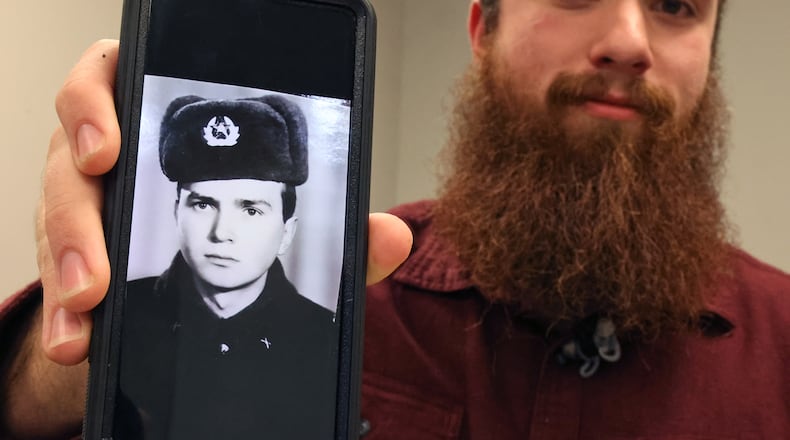David said his father, a pastor in their home state of Pennsylvania, has been “melancholy” over news in his homeland over the past few weeks. David himself has neither lived in Ukraine or traveled to the country. But he grew up hearing details from his dad about growing up in the former Soviet Republic in a two-room apartment, which he shared with his parents and five siblings.
“It’s very sad, but every time I talk to my dad about it, he’s like ‘this is kind of inevitable,’” Kravets said. “It’s been a 20- or 30-year process, a piece at a time, inch by inch.”
Many of the Kravets’ relatives lived in Ukraine for years or still live there. His aunt Rosa, for example, has no intention of leaving, Kravets said.
Rosa told her American relatives that many of the people she knows who left initially are returning to the area, as they weren’t received by surrounding countries, and many Kyiv residents are also intent on staying.
“It’s a tough decision to make, moving your family thousands of miles,” he said.
Kravets’ aunt sent to relatives a photo of a large crack in her apartment wall the other day, a product of the reverberation of bombs shaking buildings.
“It’s very tumultuous,” Kravets said.
Some of his relatives have successfully fled the area, though, with a cousin and her family of five children moving to the States earlier this month.
But David’s other cousin, Nina, returned to Ukraine to work as a missionary and support people there by helping them access food and clothing.
The initial weeks following Russia’s invasion of Ukraine resulted in the scarcity of many things, like food and, initially, Internet access.
“It looked like the toilet paper shelves here at the start of the pandemic,” he said “Really, it would be easier to ask, ‘what didn’t come to a standstill?’”
Kravets said the conversation he hears people engage in when talking about Ukraine typically takes on a political tone, with many questioning if the country should maintain its sovereignty or not.
“Does that matter?” Kravets ask. “When all these people are dying? Is that not our primary concern?”
Kravets also hopes that the culture of Russia – particularly its music, which he studied intently while he was a Cedarville University student – isn’t “canceled” as a result of the invasion.
“I really believe music is more powerful than politics, and culture can transcend the regimes that try to steer it,” Kravets said. “We can still recognize culture without condoning certain actions.”
About the Author



